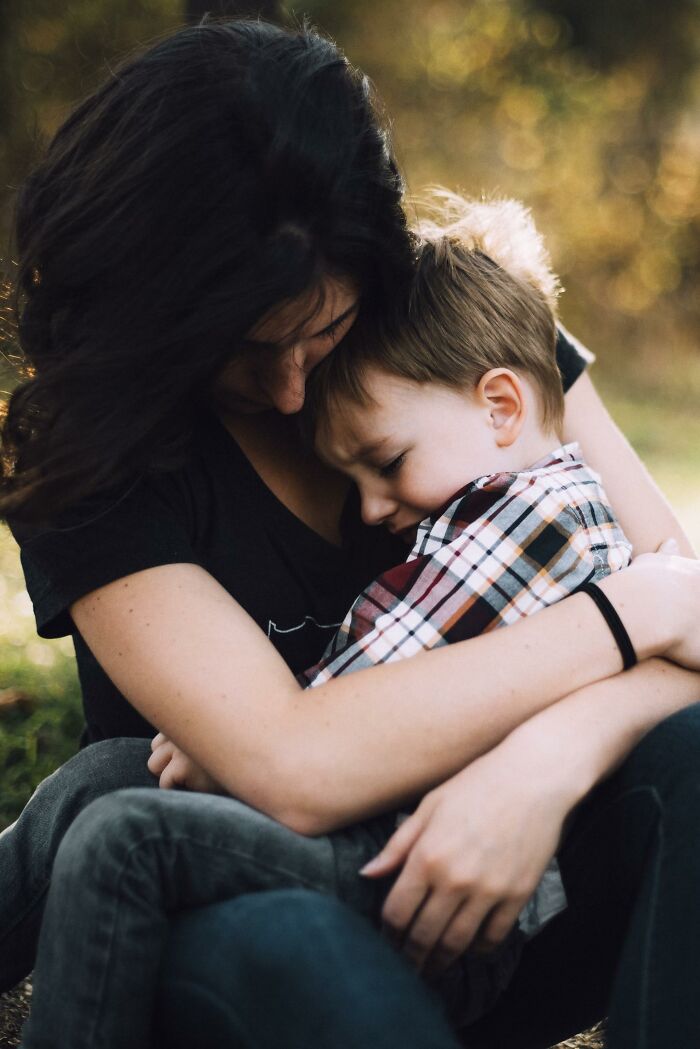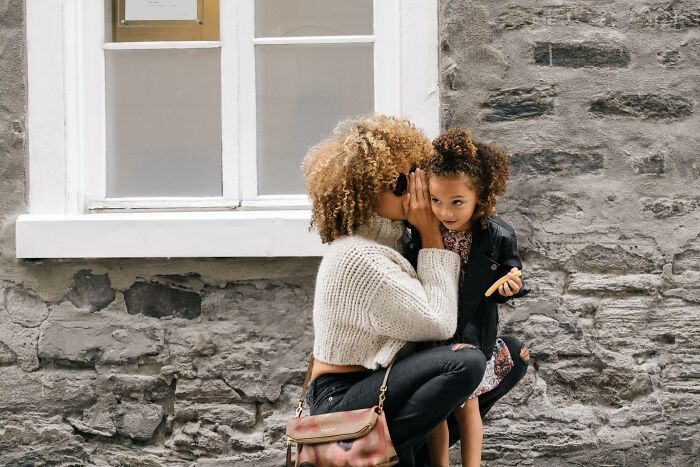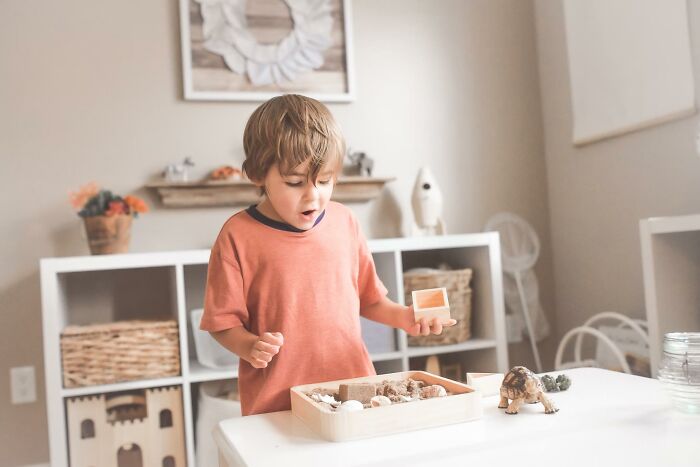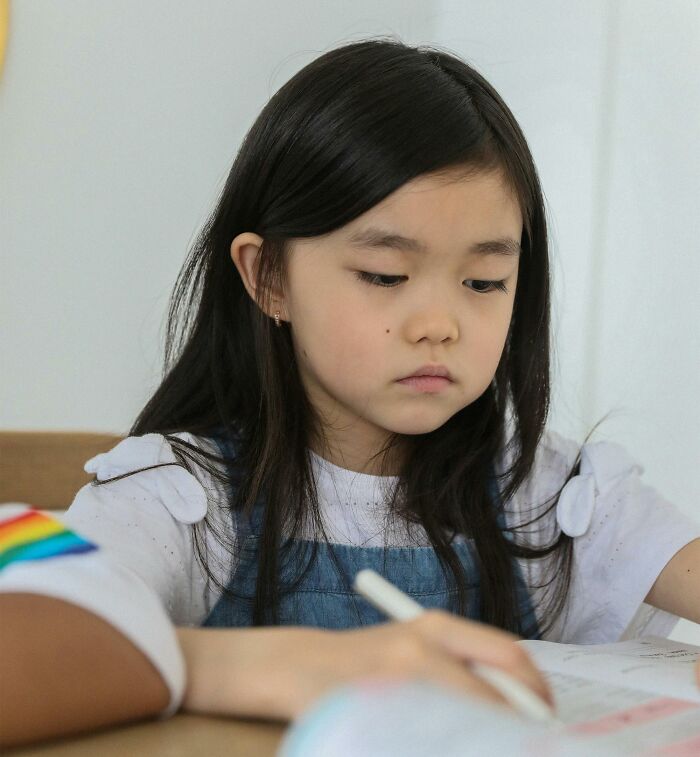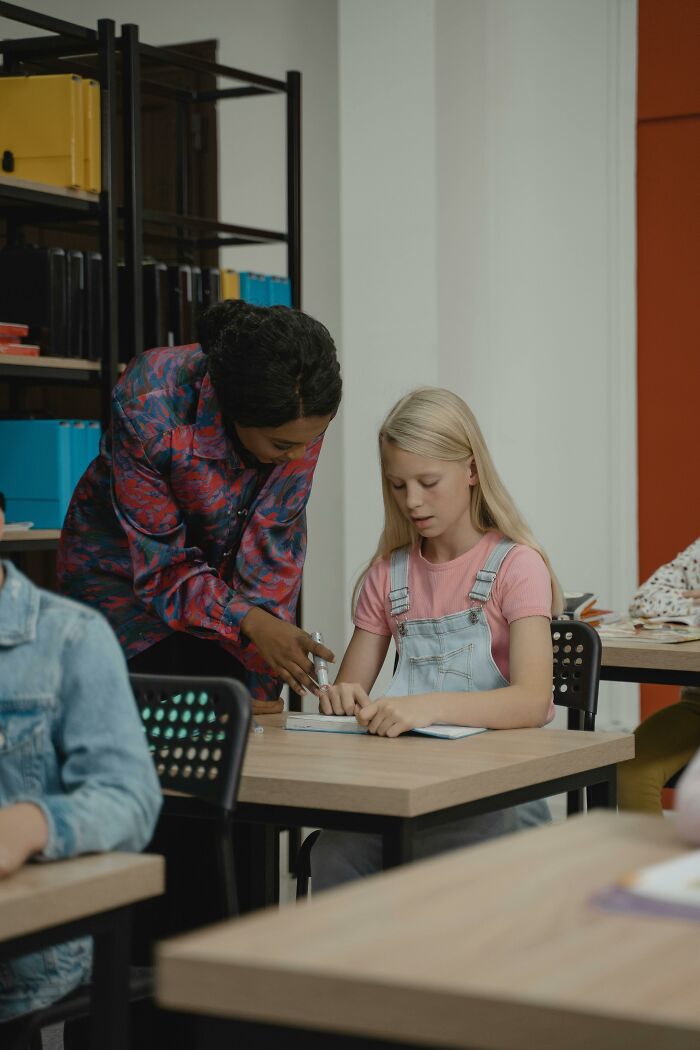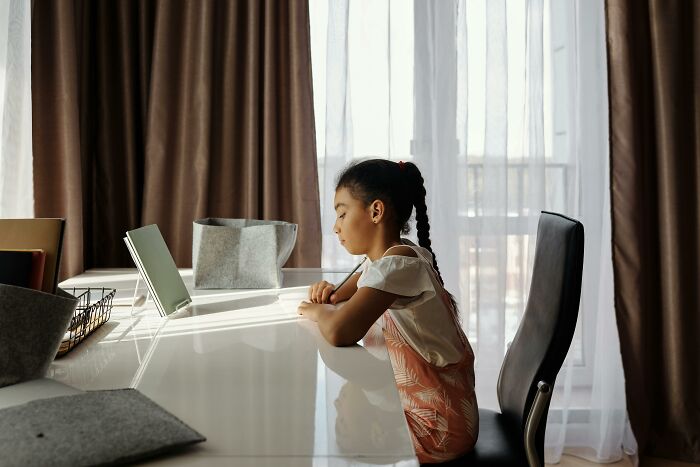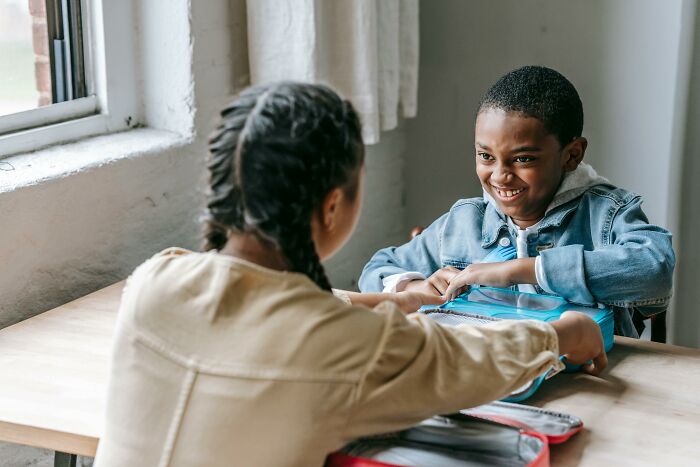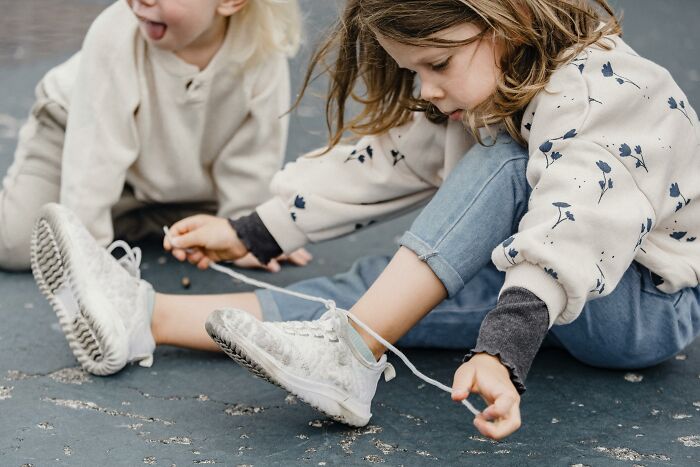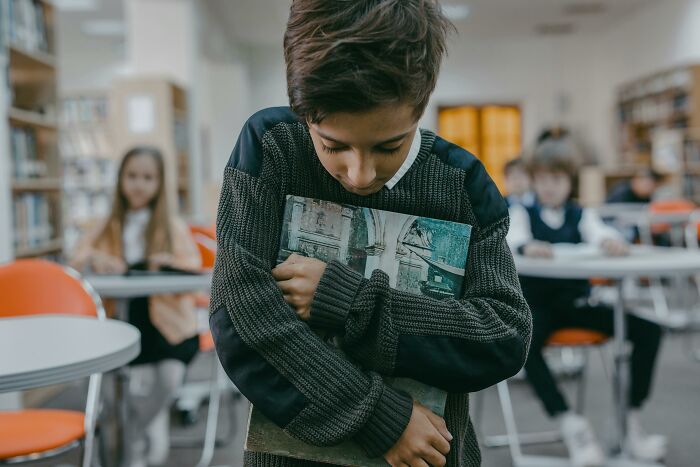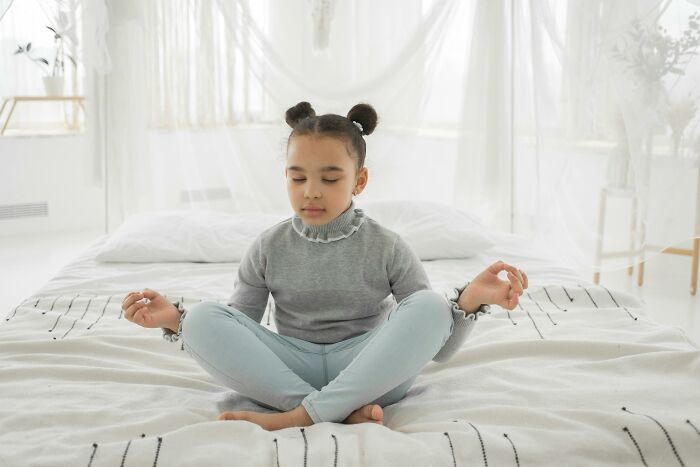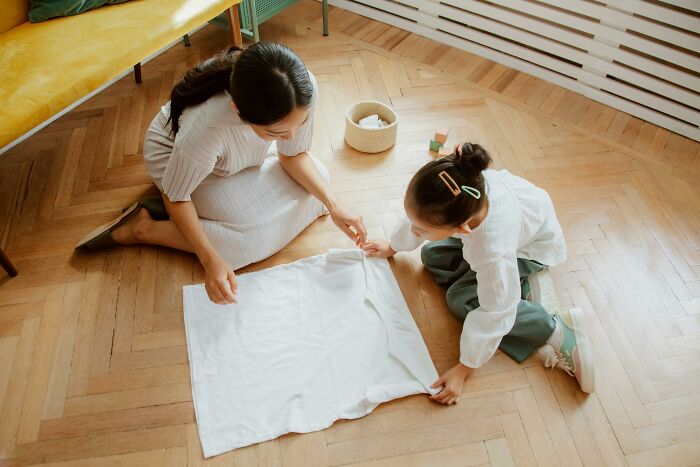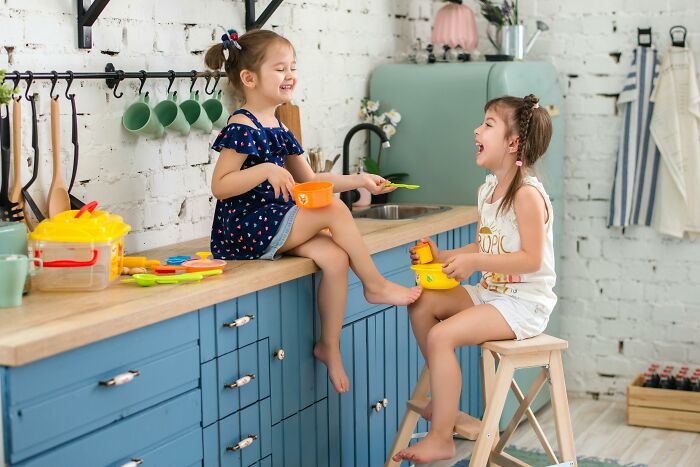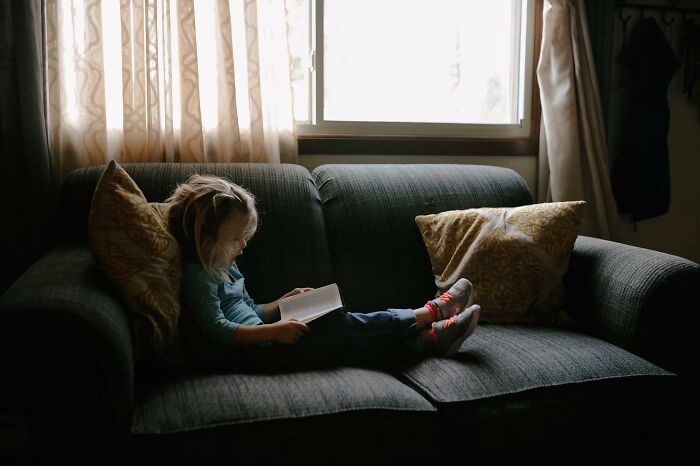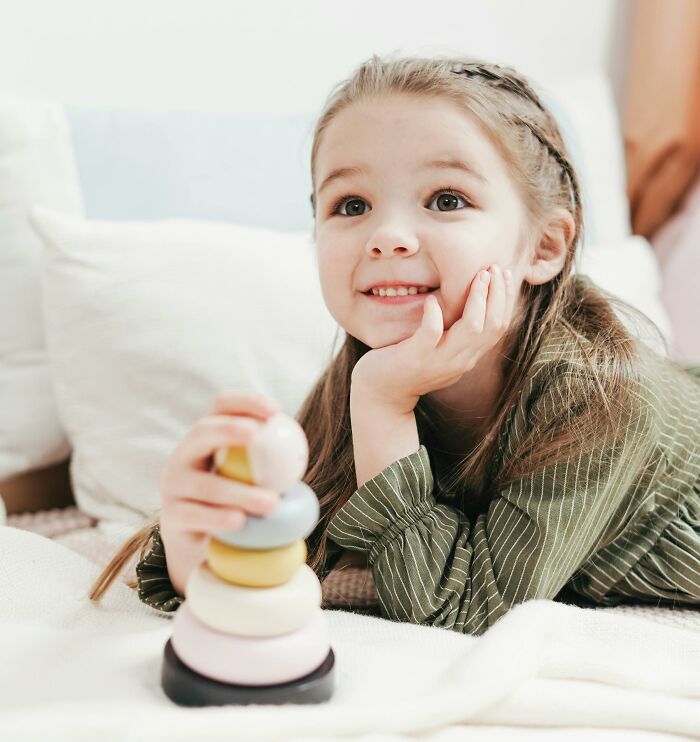That’s why school principal and founder of Educational Impact Academy, Karin Jakubowski, EdD, has been making it easier for parents to better understand their children through sharing bite-sized videos online. Below, you’ll find some of the best tips Dr. Jakubowski has posted on TikTok, as well as a conversation between her and Bored Panda! More info: Momnificent Podcast | Instagram | YouTube | Facebook
Dr. Karin Jakubowski has been sharing all of her best parenting tips online to help moms and dads better understand their little ones @karinjakubowski Top 5 Skills Your Kid Needs Before Kindergarten! #kindergartenready #parenting #momnificent #tipsforparents #momsoftik #parentingtips101 #learnontiktok #preschool #preschooler #kindergarten ♬ original sound - Momnificent ✨ Parent Tips
karinjakubowski , Lgh_9 / Pexels Report
“Throughout my career, I encountered moments of frustration when traditional approaches failed to address the root causes of students’ behavioral challenges. It was a pivotal moment when I discovered the collaborative problem-solving approach advocated by Dr. Stuart Ablon,” Dr. Jakubowski explained. “Implementing this method transformed my interactions with students, enabling me to delve deeper into the underlying reasons for their behavior and empower them with essential problem-solving skills.”
“Driven by a passion to share this transformative approach, I embarked on a mission to reach out to as many parents and educators as possible,” the expert continued. “Thus, ‘Momnificent,’ my podcast, was born. Interestingly, while the podcast serves as a platform for discussing various parenting and teaching strategies, I’ve found myself guesting on other podcasts more frequently, spreading the word about collaborative problem-solving.”
karinjakubowski , Jordan Whitt / Unsplash Report
karinjakubowski , Sai De Silva / Unsplash Report
“Reflecting on the disparity between the extensive training we undergo for our professional careers and the lack of formal education in parenting, I felt compelled to bridge this gap,” the expert says. “The paradox of investing years in preparing for a career while navigating parenthood without a comprehensive guidebook struck me profoundly. Thus, my TikTok videos serve as a resource hub for busy moms striving to provide the best possible upbringing for their children amidst the demands of everyday life.”
Dr. Jakubowski says that, ultimately, her mission is to equip parents with the knowledge and skills necessary to raise happy, healthy children. “By leveraging the power of online platforms, I aspire to democratize access to invaluable parenting insights and foster a community dedicated to nurturing the next generation.”
karinjakubowski , Paige Cody / Unsplash Report
karinjakubowski , Monstera Production / Pexels Report
karinjakubowski , Tatiana Syrikova / Pexels Report
“Secondly, societal expectations and norms can lead to misconceptions about children’s behavior,” Dr. Jakubowski continued. “There’s a tendency to attribute certain actions to disobedience or laziness without considering underlying factors such as developmental stages, emotional struggles, or learning differences.”
“Moreover, limited time and resources can hinder the ability to delve deeper into understanding a child’s needs,” the expert says. “Both parents and teachers juggle multiple responsibilities, leaving little room for in-depth observation and communication.”
karinjakubowski , Tima Miroshnichenko / Pexels Report
karinjakubowski , August de Richelieu / Pexels Report
karinjakubowski , Phil Nguyen / Pexels Report
“Lastly, the dynamic nature of childhood and adolescence means that children’s behaviors and needs evolve rapidly. Keeping pace with these changes requires ongoing communication, flexibility, and a willingness to adapt strategies accordingly, which may not always be feasible in busy households or classrooms,” the expert says.
“Addressing these common misunderstandings requires a collaborative approach that emphasizes empathy, active listening, and a commitment to understanding the unique perspectives of children,” Dr. Jakubowski continued. “By fostering open communication and mutual respect between parents, teachers, and children, we can cultivate environments where misunderstandings are minimized, and meaningful connections flourish.”
karinjakubowski , Katerina Holmes / Pexels Report
karinjakubowski , Allan Mas / Pexels Report
karinjakubowski , Mikhail Nilov / Pexels Report
“The collaborative problem-solving approach isn’t just a technique; it’s a mindset and a skill set that I’ve learned, utilized, and passionately shared with parents and educators alike,” the expert explained. “This process encourages open communication, empathy, and teamwork between parents, educators, and students.”
karinjakubowski , Monstera Production / Pexels Report
karinjakubowski , Ron Lach / Pexels Report
karinjakubowski , cottonbro studio / Pexels Report
“Through my TikTok videos and interactions with parents, I continuously advocate for the collaborative problem-solving process because I’ve witnessed its transformative power in building stronger relationships and fostering positive outcomes for children’s education and well-being,” the expert noted. “So, if there’s one piece of advice I can offer parents, it’s to embrace the collaborative problem-solving approach wholeheartedly—it’s a game-changer!”
karinjakubowski , Polesie Toys / Pexels Report
karinjakubowski , Josh Applegate / Unsplash Report
karinjakubowski , Gustavo Fring / Pexels Report
This is essential for building trust. “When children feel understood by their parents, they are more likely to trust them. This trust forms the basis of a strong parent-child relationship, allowing for open communication and a sense of security,” the expert says.
It’s also key for creating effective communication. “Understanding a child’s unique personality, preferences, and communication style enables parents to tailor their interactions accordingly. This fosters clearer communication and minimizes misunderstandings or conflicts,” Dr. Jakubowski shared.
karinjakubowski , cottonbro studio / Pexels Report
karinjakubowski , Jonathan Borba / Pexels Report
karinjakubowski , Kindel Media / Pexels Report
It also allows parents to recognize their children’s needs, which can be especially helpful for kids who struggle with expressing their feelings or articulating what they need.
Understanding your kiddos helps promote self-esteem as well. “When parents show understanding and acceptance towards their children, it boosts their self-esteem and confidence,” the expert explained. “Feeling understood validates their feelings and experiences, helping them develop a positive sense of self.”
karinjakubowski , sedrik2007 / Envato Report
Follow Bored Panda on Google News!
Follow us on Flipboard.com/@boredpanda!



